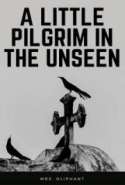The Lady's Walk
- / Home
- / Fiction Books /

Author: Mrs. Oliphant
Downloads: 19
Visits: 1
Pages: 126
Published: 3 years agoRating: Rated: 0 times Rate It
- 1 star
- 2 stars
- 3 stars
- 4 stars
- 5 stars
Book Description HTML
I WAS on a visit to some people in Scotland when the events I am about to relate took place. They were not friends in the sense of long or habitual intercourse; in short, I had met them only in Switzerland in the previous year; but we saw a great deal of each other while we were together, and got into that easy intimacy which travelling brings about more readily than anything else. We had seen each other in very great déshabillé both of mind and array in the chilly mornings after a night’s travelling, which perhaps is the severest test that can be applied in respect to looks, and amid all the annoyances of journeys short and long, with the usual episodes of lost luggage, indifferent hotels, fusses of every description, which is an equally severe test for the temper; and our friendship and liking (I am at liberty to suppose it was mutual, or they would never have invited me to Ellermore) remained unimpaired. I have always...





